Robert M. Rolfe
Topic Similarity Networks: Visual Analytics for Large Document Sets
Sep 26, 2014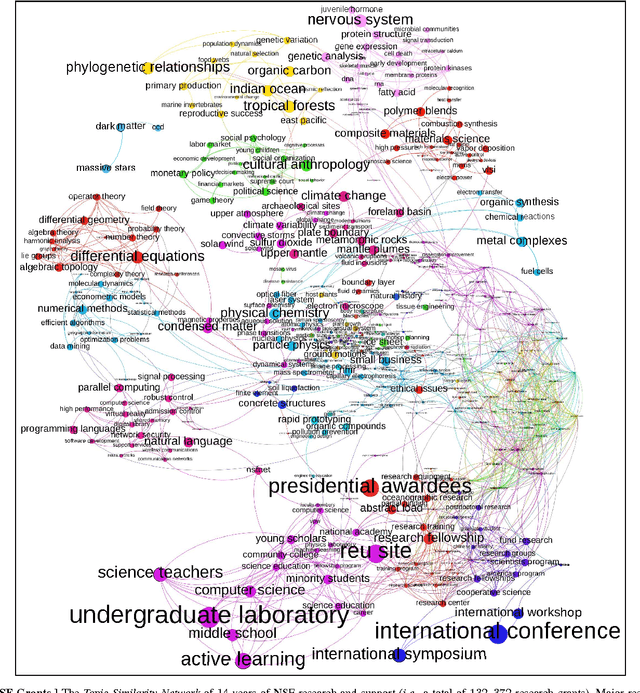
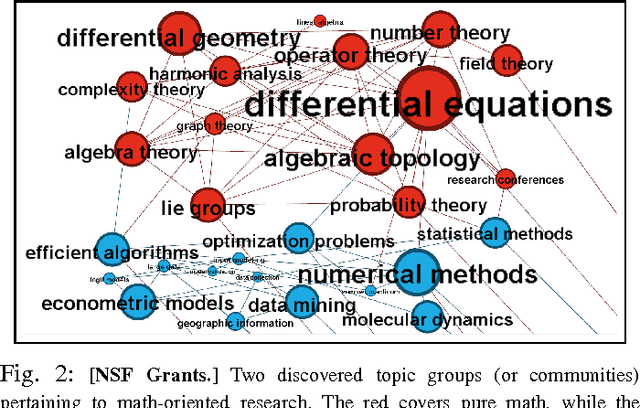
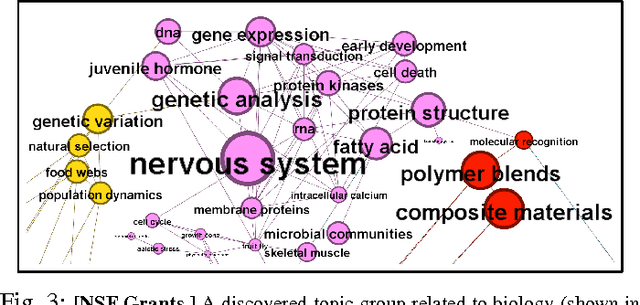
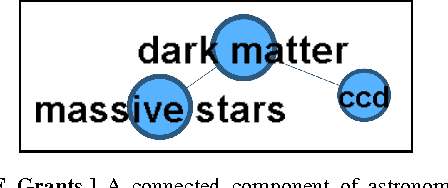
Abstract:We investigate ways in which to improve the interpretability of LDA topic models by better analyzing and visualizing their outputs. We focus on examining what we refer to as topic similarity networks: graphs in which nodes represent latent topics in text collections and links represent similarity among topics. We describe efficient and effective approaches to both building and labeling such networks. Visualizations of topic models based on these networks are shown to be a powerful means of exploring, characterizing, and summarizing large collections of unstructured text documents. They help to "tease out" non-obvious connections among different sets of documents and provide insights into how topics form larger themes. We demonstrate the efficacy and practicality of these approaches through two case studies: 1) NSF grants for basic research spanning a 14 year period and 2) the entire English portion of Wikipedia.
Exploratory Analysis of Highly Heterogeneous Document Collections
Aug 11, 2013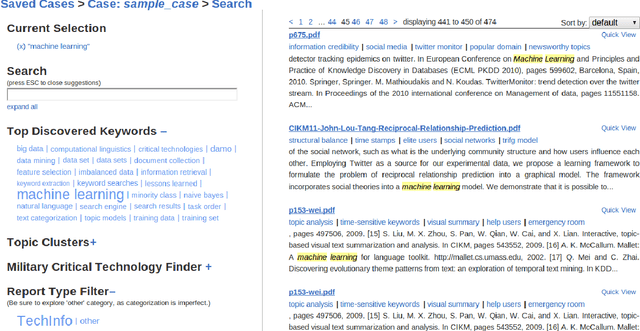

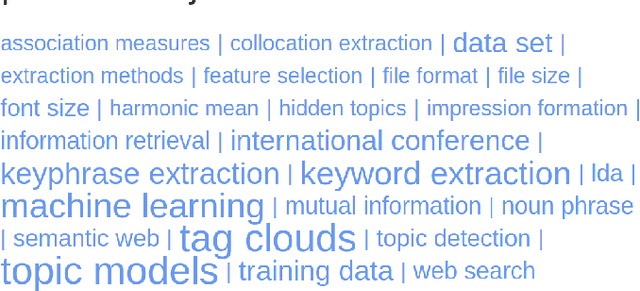

Abstract:We present an effective multifaceted system for exploratory analysis of highly heterogeneous document collections. Our system is based on intelligently tagging individual documents in a purely automated fashion and exploiting these tags in a powerful faceted browsing framework. Tagging strategies employed include both unsupervised and supervised approaches based on machine learning and natural language processing. As one of our key tagging strategies, we introduce the KERA algorithm (Keyword Extraction for Reports and Articles). KERA extracts topic-representative terms from individual documents in a purely unsupervised fashion and is revealed to be significantly more effective than state-of-the-art methods. Finally, we evaluate our system in its ability to help users locate documents pertaining to military critical technologies buried deep in a large heterogeneous sea of information.
 Add to Chrome
Add to Chrome Add to Firefox
Add to Firefox Add to Edge
Add to Edge